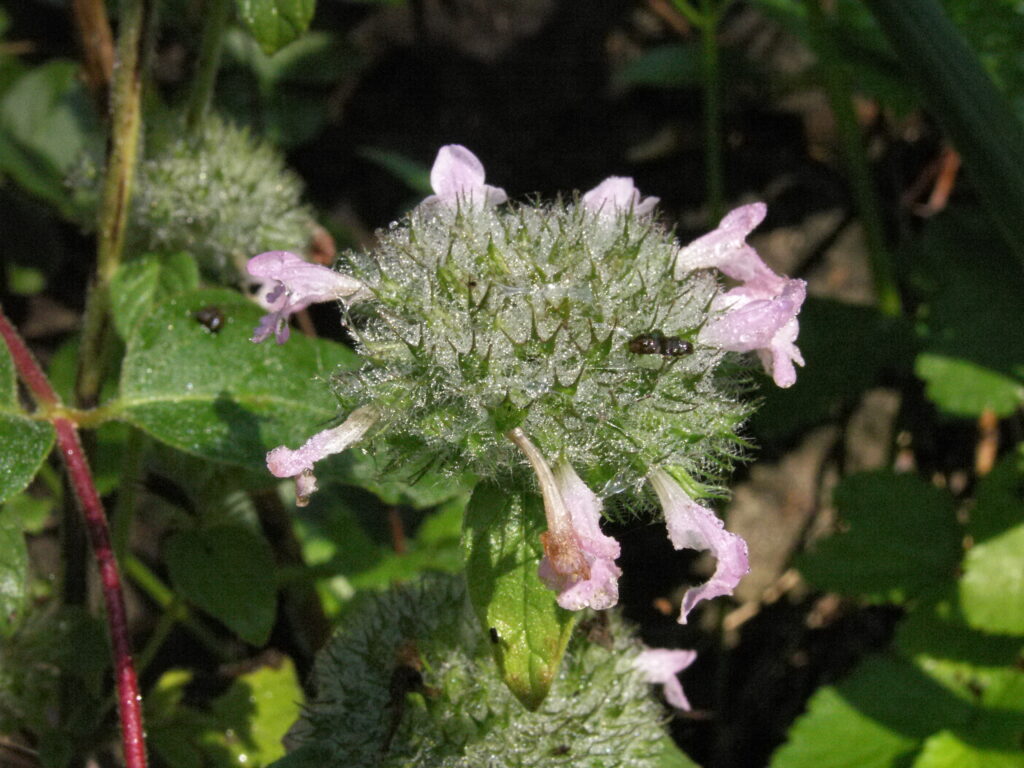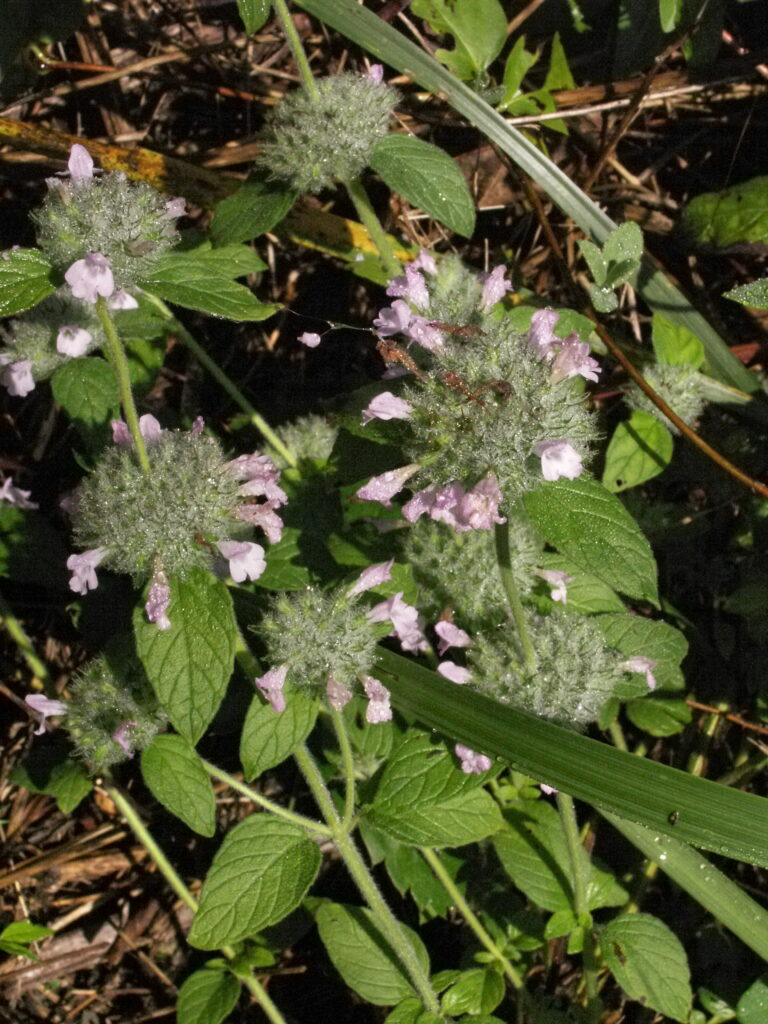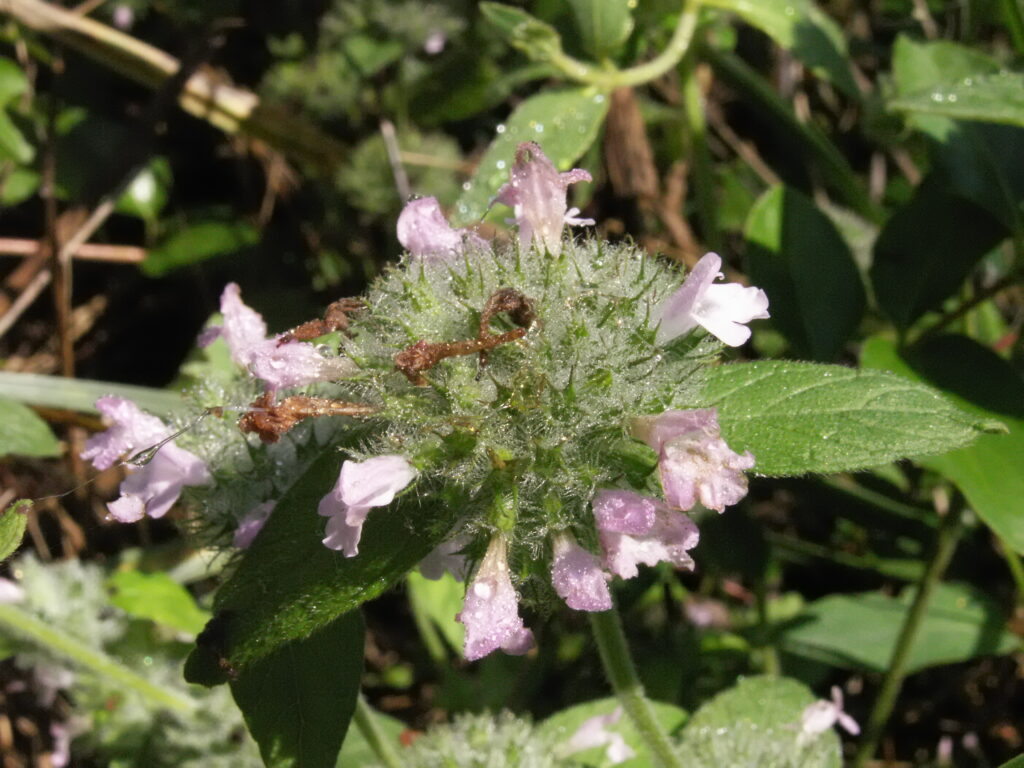
More pictures of this pretty little mint growing along the Montour Trail in Moon Township. For a description of the species, see the Clinopodium vulgare reference page.






More pictures of this pretty little mint growing along the Montour Trail in Moon Township. For a description of the species, see the Clinopodium vulgare reference page.






A mint that grows fuzzy heads of pinkish flowers. In many references this is Satureja vulgaris, and it has gone by many other names as botanists have tried to sort out this branch of the mint family. It is either native or introduced or both: the USDA PLANTS database has it as native throughout its range in North America; the Lady Bird Johnson Wildflower Center says that it “is native in the northern part of its range but was probably introduced from Europe, where it is widespread, in the southern part”; other sources list it as entirely introduced.
These plants were growing along the Montour Trail in Moon Township.



A native plant often grown as a garden perennial. It is listed as native in the USDA PLANTS Database throughout most of the eastern United States, but Gray (revised by Fernald) points out that it is often a garden escape. Our wild specimens of this plant in the Pittsburgh area are probably descended mostly from garden plants, but it is hard to tell anymore. These were blooming in a field deliberately maintained as a native-plant showcase in Robin Hill Park, Moon Township.



For a description of the species, see the Monarda fistulosa reference page.


A popular garden groundcover frequently found in the wild around Pittsburgh. The forms around here usually have a white blotch in the middle of each leaf, which makes identification easy.

There are many common names for this plant; Purple Dragon is another, and the flowers do look like little dragon heads if you have the kind of imagination that sees dragon heads in little purple flowers.

For Gray’s description of the species, see the Lamium maculatum reference page.


Lemon Balm can be very weedy, but it is so useful that it is hard to resent as a weed. The lemony leaves make a good tisane, and the flowers are great favorites with bees. These plants were growing along a fence in Beechview.



For a description of the species, see the Melissa officinalis reference page.
